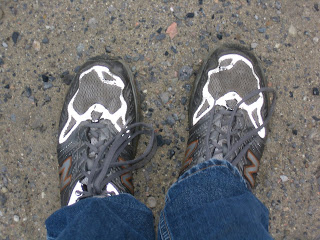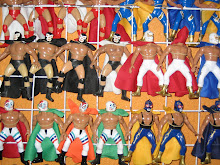 To answer these questions, I have to take you to two beaches: Mochima in Venezuela, and Llico in Chile. The first might be confused for a steamy version of paradise upon first glance. If you look at your feet, which are probably bare, you see fine white granules of sand, free of garbage, seaweed, and other types of detritus. Looking down further, a soft breeze tosses the crystalline water into gentle waves; a handful of ostentatious yachts rest not far from the hot sand. Mochima is a protected national park near my current residence in Cumaná, Venezuela. On occasions such as this, life feels good, and I cannot kvetch. I am lucky to have the company of my Venezuelan friends Eliana, Roamir, Pablo, and Rachel, another North American English teacher. Of course, we are not alone: other beach-going Venezuelans pack the shore too. Given the hot weather, everyone tends to minimize the amount of clothing worn. For better or worse, the women with bikinis have their speedo-sporting male counterparts as well. "To each his own," I think. The beach in Venezuela typically is no place for modesty.
To answer these questions, I have to take you to two beaches: Mochima in Venezuela, and Llico in Chile. The first might be confused for a steamy version of paradise upon first glance. If you look at your feet, which are probably bare, you see fine white granules of sand, free of garbage, seaweed, and other types of detritus. Looking down further, a soft breeze tosses the crystalline water into gentle waves; a handful of ostentatious yachts rest not far from the hot sand. Mochima is a protected national park near my current residence in Cumaná, Venezuela. On occasions such as this, life feels good, and I cannot kvetch. I am lucky to have the company of my Venezuelan friends Eliana, Roamir, Pablo, and Rachel, another North American English teacher. Of course, we are not alone: other beach-going Venezuelans pack the shore too. Given the hot weather, everyone tends to minimize the amount of clothing worn. For better or worse, the women with bikinis have their speedo-sporting male counterparts as well. "To each his own," I think. The beach in Venezuela typically is no place for modesty. One can observe this effusive air by the anthropogenic sounds too. In addition to the soft breeze, the Latin beats of salsa, merengue, and reggaeton are as loud and inescapable at the beach as they are in the streets of downtown Cumaná. Moreover, my friends (mainly the male ones) constantly joke in a raucous manner without a concern for the volume of their voices. And why should anyone worry? There is no reason to hush one’s voice when children and adults alike scream as they play in the warm Caribbean water.
One can observe this effusive air by the anthropogenic sounds too. In addition to the soft breeze, the Latin beats of salsa, merengue, and reggaeton are as loud and inescapable at the beach as they are in the streets of downtown Cumaná. Moreover, my friends (mainly the male ones) constantly joke in a raucous manner without a concern for the volume of their voices. And why should anyone worry? There is no reason to hush one’s voice when children and adults alike scream as they play in the warm Caribbean water. The second beach has a very different feel as I look down at my feet, closed toed shoes still on, and see that the sand is darker and less fine. Though it is on the same continent of South America as Mochima, one sees, feels and hears stark differences in the fishermen’s cove of Llico in southern Chile where I stand with my two good friends Lucho and Cristian Díaz*. Upon looking at the expanse of beach, I see a mosaic composed of seaweed, broken shells, black speckled sand and wind-swept bluffs. Wind is the operative word in this land because it is strong and inescapable, complemented by the crash of the waves. The large trees brave the wind’s force, yet there is certainly no Caribbean palm tree in sight, nor do the locals slurp down piña coladas to wash down their empanadas. Regardless, plenty of Chilean families enjoy the beach’s rugged beauty, though it is not as packed as its aforementioned Venezuelan counterpart. Locals test their nerves in the frigid water of the Pacific Ocean, yet taking a dip is less tempting for me, especially as I think about the tropical waters of Mochima. I am more than content admiring the scenery.
The second beach has a very different feel as I look down at my feet, closed toed shoes still on, and see that the sand is darker and less fine. Though it is on the same continent of South America as Mochima, one sees, feels and hears stark differences in the fishermen’s cove of Llico in southern Chile where I stand with my two good friends Lucho and Cristian Díaz*. Upon looking at the expanse of beach, I see a mosaic composed of seaweed, broken shells, black speckled sand and wind-swept bluffs. Wind is the operative word in this land because it is strong and inescapable, complemented by the crash of the waves. The large trees brave the wind’s force, yet there is certainly no Caribbean palm tree in sight, nor do the locals slurp down piña coladas to wash down their empanadas. Regardless, plenty of Chilean families enjoy the beach’s rugged beauty, though it is not as packed as its aforementioned Venezuelan counterpart. Locals test their nerves in the frigid water of the Pacific Ocean, yet taking a dip is less tempting for me, especially as I think about the tropical waters of Mochima. I am more than content admiring the scenery.And certain acoustic qualities of the beach in Llico are apparent in every corner of the country. True to its Latin American identity, the streets in the Chile have the ongoing serenade of reggaeton and other Latin American pop music. However, the music is rarely heard at ear-drum
 bursting volumes that assault all who trot the streets of Venezuela. I have also noticed that people tend to speak at a slightly hushed volume in Chile, and the jokes told by Chileans come off as more tame and lack the double meaning that is characteristic of the Venezuelan sense of humor. Regardless, I have a wonderful time with Lucho and Cristian, who –like my Venezuelan friends Eliana, Roamir and Pablo – provide great company, local knowledge and their own well-rounded sense of humor. Based on such observations, Chile begins to feel as sincere as much as it is conservative, measured, and subtle in its style.
bursting volumes that assault all who trot the streets of Venezuela. I have also noticed that people tend to speak at a slightly hushed volume in Chile, and the jokes told by Chileans come off as more tame and lack the double meaning that is characteristic of the Venezuelan sense of humor. Regardless, I have a wonderful time with Lucho and Cristian, who –like my Venezuelan friends Eliana, Roamir and Pablo – provide great company, local knowledge and their own well-rounded sense of humor. Based on such observations, Chile begins to feel as sincere as much as it is conservative, measured, and subtle in its style.The juxtaposition of this tamed temperament and the coastal landscape creates a timeless allure in this country. In other words, one encounters warm and inviting people who are willing to share everything in the face of impressive yet less-than-paradisal landscapes. Neither better nor worse than the offerings of Venezuela, it is simply different. Llico absorbs me completely before long, tempting me to stare along the whole coastline as the wind jostles my hair. I cannot get enough of it.


 In Leo Rosten´s lexicographic classic The Joys of Yiddish, the reader can find ample synonyms for the word chutzpa: “gall, brazen nerve, effrontery, incredible ‘guts’,” all of which come from the ancestral Hebrew word for audacity (92-93). I find myself encountering a special type of chutzpa on a frequent basis in Venezuela, and it exists in the form of blunt honesty blended with an affinity to joke about people playfully and constantly. In Spanish, Venezuelans refer to this ubiquitous practice as echar broma, often involving a healthy dose of double entendre. I take you to the local bakery near my apartment in Cumaná to illustrate this.
In Leo Rosten´s lexicographic classic The Joys of Yiddish, the reader can find ample synonyms for the word chutzpa: “gall, brazen nerve, effrontery, incredible ‘guts’,” all of which come from the ancestral Hebrew word for audacity (92-93). I find myself encountering a special type of chutzpa on a frequent basis in Venezuela, and it exists in the form of blunt honesty blended with an affinity to joke about people playfully and constantly. In Spanish, Venezuelans refer to this ubiquitous practice as echar broma, often involving a healthy dose of double entendre. I take you to the local bakery near my apartment in Cumaná to illustrate this.





 Mery, Albelk and me before Obama won.
Mery, Albelk and me before Obama won. I waited for Obama to win the neccesary 270 votes in the Electoral College-what suspense!
I waited for Obama to win the neccesary 270 votes in the Electoral College-what suspense!
 Anything Can Happen in Venezuela
Anything Can Happen in Venezuela

 Thus the age-old chicken-and-egg hypothesis comes into play: which came first, the logistical inefficiency or the low stress attitudes? In other words, do the inefficiencies in the country contribute to a decreased urgency, or does a relaxed lifestyle cause inefficiency? At the same time, I do not wish to glorify and romanticize the infrastructure problems that contribute to electricity failures and other public utility shortcomings. The black outs raise other pressing questions too. For example: to what extent do power failures have an impact on the quality of education in Venezuela? Moreover, must efficiency and a lifestyle characterized by low-stress be mutually exclusive?
Thus the age-old chicken-and-egg hypothesis comes into play: which came first, the logistical inefficiency or the low stress attitudes? In other words, do the inefficiencies in the country contribute to a decreased urgency, or does a relaxed lifestyle cause inefficiency? At the same time, I do not wish to glorify and romanticize the infrastructure problems that contribute to electricity failures and other public utility shortcomings. The black outs raise other pressing questions too. For example: to what extent do power failures have an impact on the quality of education in Venezuela? Moreover, must efficiency and a lifestyle characterized by low-stress be mutually exclusive?
 My plane hit the tarmac at approximately 5:15 am in Maiquetía Airport, and I had only slept about two or three hours since leaving San Francisco. Fortunately, the frigid yet smooth encounters with Venezuelan immigration and customs officials never fully registered because of my drowsy state. Bumper to bumper traffic and one and a half hours later (“¡At 5:45 in the morning!”), I arrive at the hotel. Not much exploring happened despite the fact that nothing was scheduled. Tropical urban jungle would be the first words that come to mind when describing Caracas. Yet adventures dodging maniacal drivers and standing out seemed like the agenda item for another day; sleep and down time had more appeal.
My plane hit the tarmac at approximately 5:15 am in Maiquetía Airport, and I had only slept about two or three hours since leaving San Francisco. Fortunately, the frigid yet smooth encounters with Venezuelan immigration and customs officials never fully registered because of my drowsy state. Bumper to bumper traffic and one and a half hours later (“¡At 5:45 in the morning!”), I arrive at the hotel. Not much exploring happened despite the fact that nothing was scheduled. Tropical urban jungle would be the first words that come to mind when describing Caracas. Yet adventures dodging maniacal drivers and standing out seemed like the agenda item for another day; sleep and down time had more appeal.

